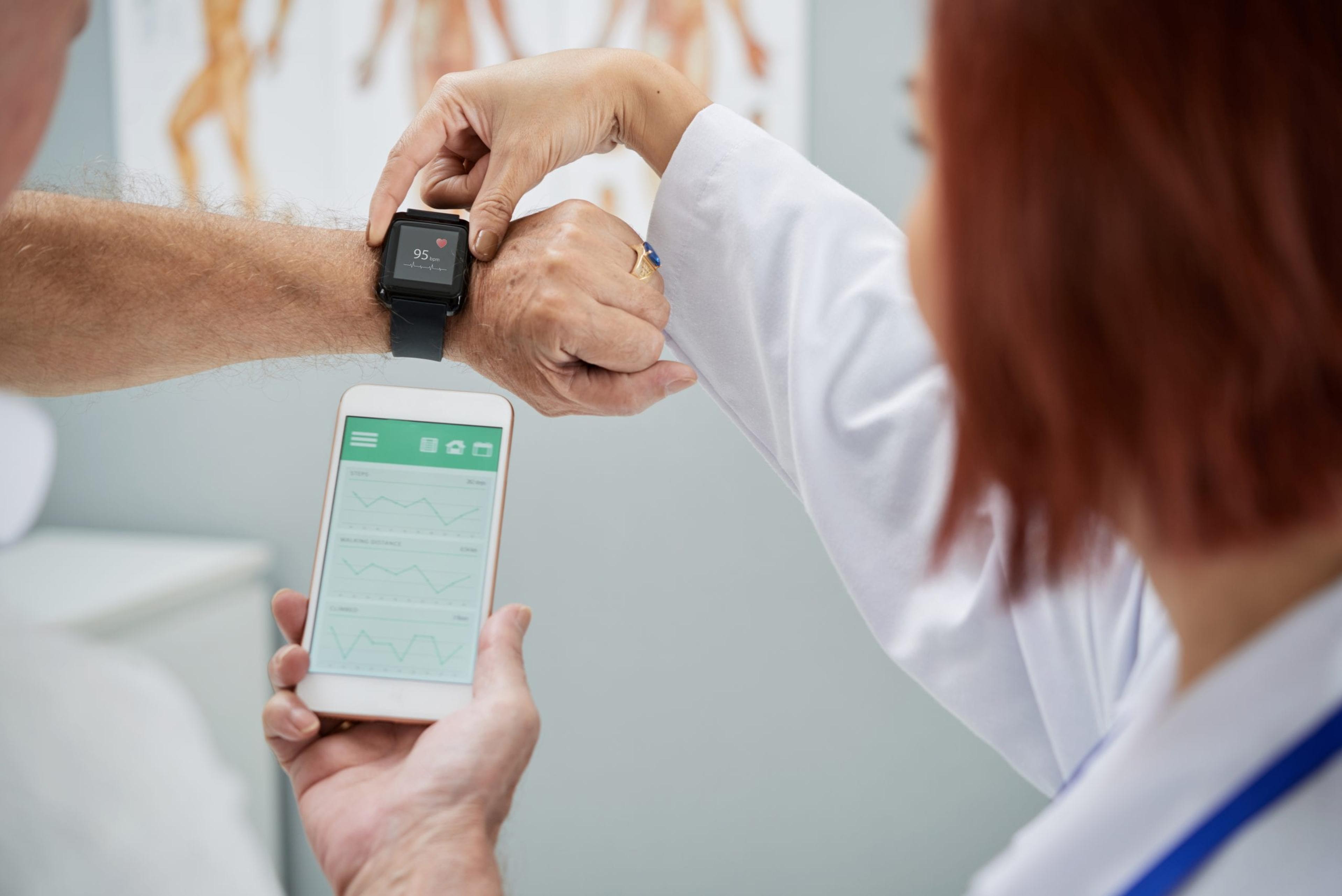Technology in Health Care: Panel Sees Continued Growth, Opportunity
Julie Bitely
| 4 min read

There’s no question that emerging technologies have changed every facet of our lives, making it easier to connect with friends and family, work remotely and engage in conversations on a mass scale. Technology has also made inroads into how we manage our health. If you’re wearing a fitness tracker on your wrist or have a health-related app downloaded to your phone, you’ve embraced technology as a potential way to improve your personal health. That trend is poised to explode in the coming years, according to those in the industry. At the most recent Health Forum of West Michigan, a panel of experts discussed consumer-driven technologies in health care and how they’re changing the landscape. Monthly conversations are held the first Friday of every month at Grand Valley State University. Blue Cross Blue Shield of Michigan is a sponsor of the monthly forums. Panelists included:
- Brent Nowak, executive director, applied Medical Device Institute (aMDI), Grand Valley State University
- Bimal Shah, chief medical officer, Livongo
- Ted Spooner, senior director, Zimmer Biomet Connected Health
- Jessie Riley, resident technology manager, Holland Home
The market for health care tech is booming “The internet of medical things is coming,” Nowak said. “It’s going to be huge, it’s going to be disruptive and it’s going to help us all.” He included “things” such as fitness wearables, smart pills, clinical monitors, and remote monitoring devices as some of the technology that will continue to proliferate. The market for such devices is projected to be $14.4 trillion by 2022. That will lead to a “tsunami of data,” Nowak said, noting that it will be imperative for manufacturers to control for consumer privacy and work to make impactful connections. It will also lead to great advances in care, which won’t eliminate the need for health care providers, but rather enhance how they’re able to help patients. A technical assist for managing chronic and acute conditions Technology can help people facing chronic health conditions as well as those facing a one-time acute situation. Livongo has developed many tech-assisted programs and services to help people manage chronic health conditions such as prediabetes, diabetes, weight management, hypertension and behavioral health. Blue Cross Blue Shield of Michigan started partnering with Livongo earlier this year to help some members get a grip on their diabetes. More than 147 million Americans face chronic health conditions and treatment makes up 90% of U.S. health care spend. Shah said improving treatment through technology is a smart way to rein in costs and improve quality of care. Livongo’s approach to diabetes management continuously monitors blood glucose, prompting users to adjust if abnormalities are noted and encouraging them to take part in healthy activities. It’s digitally delivered over multiple tech platforms, but still provides a human touch with expert coaches a phone call away if help is needed, Shah explained. In the first year of the program, emergency room visits were reduced by 26% and total medical spending went down by 22% for patients using the service. Patients also reduced their A1C measure, reduced blood pressure and lost weight. They also saw measured clinical improvement in depression symptoms. For patients facing knee replacement surgery, a tech-delivered program developed by Zimmer Biomet Connected Health helps people prepare for the procedure and follow a protocol for recovery. By delivering reminders, tutorials and other content via app, Spooner said patients can be sure they are following doctor’s orders every step of the way, which can help ensure compliance with steps needed for a successful surgery and recuperation. Connecting seniors to care By 2030, it’s estimated that $84 billion will be spent on technology products by people 50 and older. Riley said technology can help seniors stay connected to friends and family, improve their cognitive abilities and decrease feelings of depression and loneliness. She said companies working to disrupt health care through technology would be smart to consider the burgeoning – and growing – senior market. In her role at Holland Home, she finds that seniors are excited to embrace technology that aligns with their values and that considers the differences in their needs. She foresees the role of technology in health care continuing to expand as generations comfortable with technology enter the senior demographic. “Technology is going to provide an incredible opportunity to revolutionize the aging experience,” Riley said. Want to manage your health insurance plan on the go? We’ve got an app for that. The more you know about your health plan, the more prepared you are when you need care. Find out more here. If you found this post helpful, you might also enjoy:
- Can Telehealth Help Close the Mental Health Care Gap in Rural Michigan?
- Experience and Mentorship Helped IT Director Create a Meaningful Career
- Blue Cross IT Employees Mentor Next Generation of STEM
Photo credit: Dragon Images





